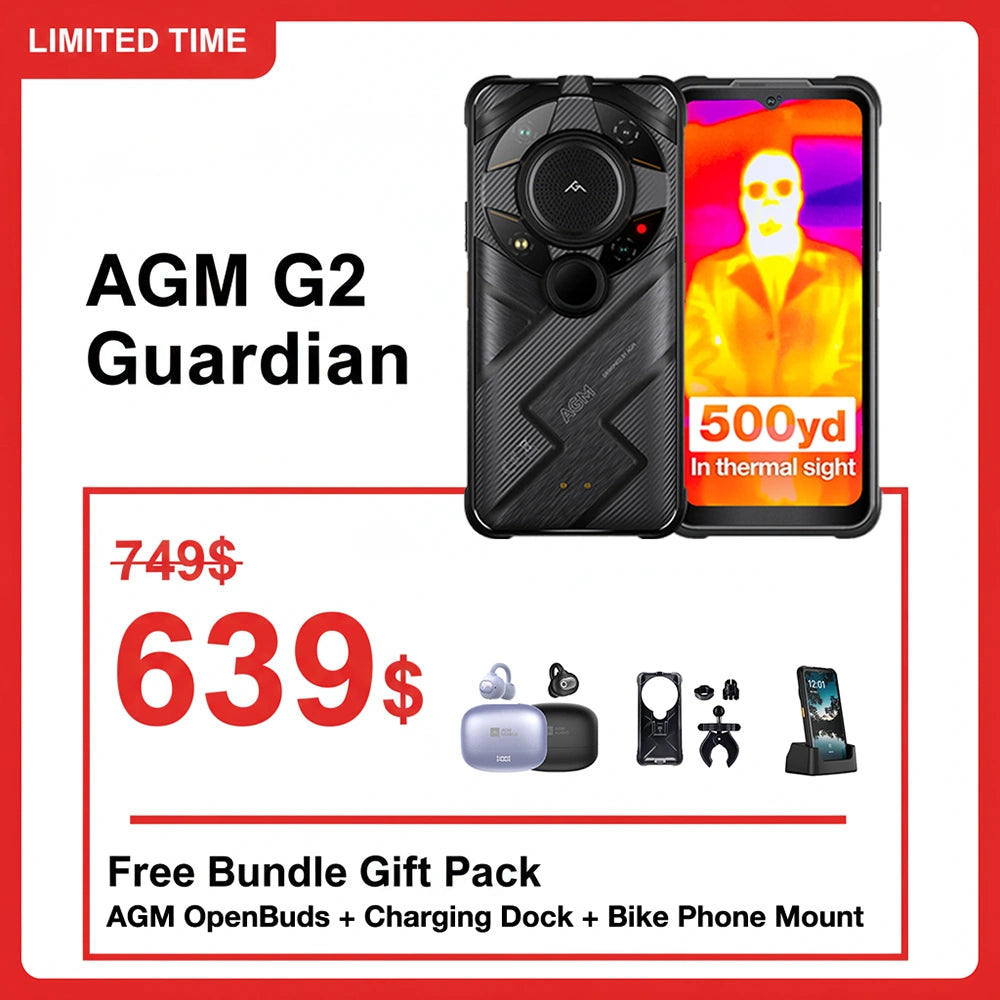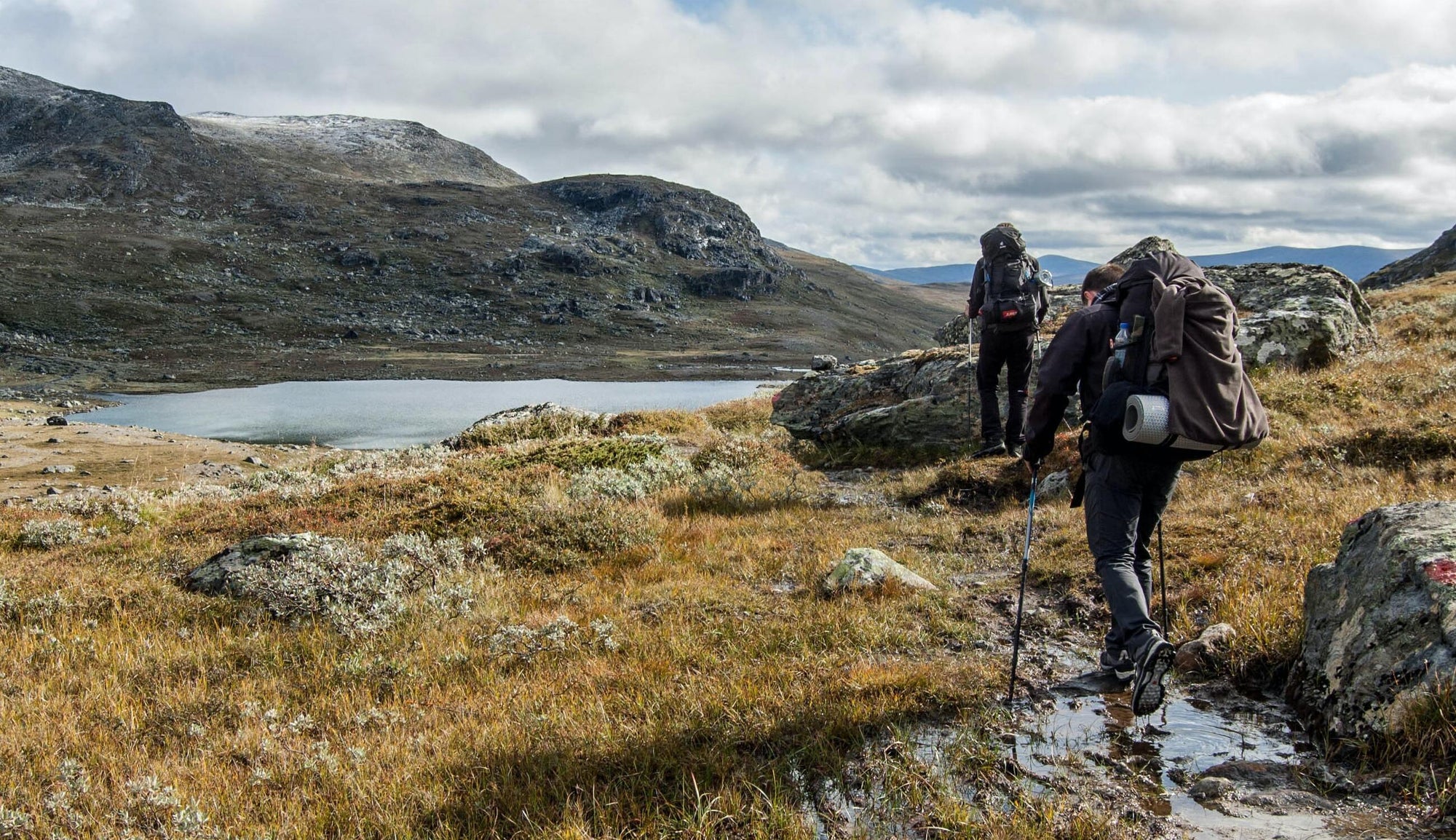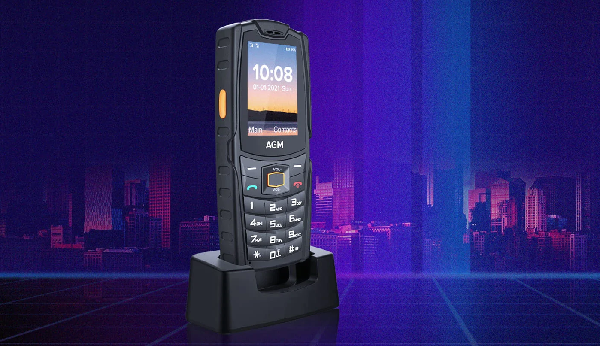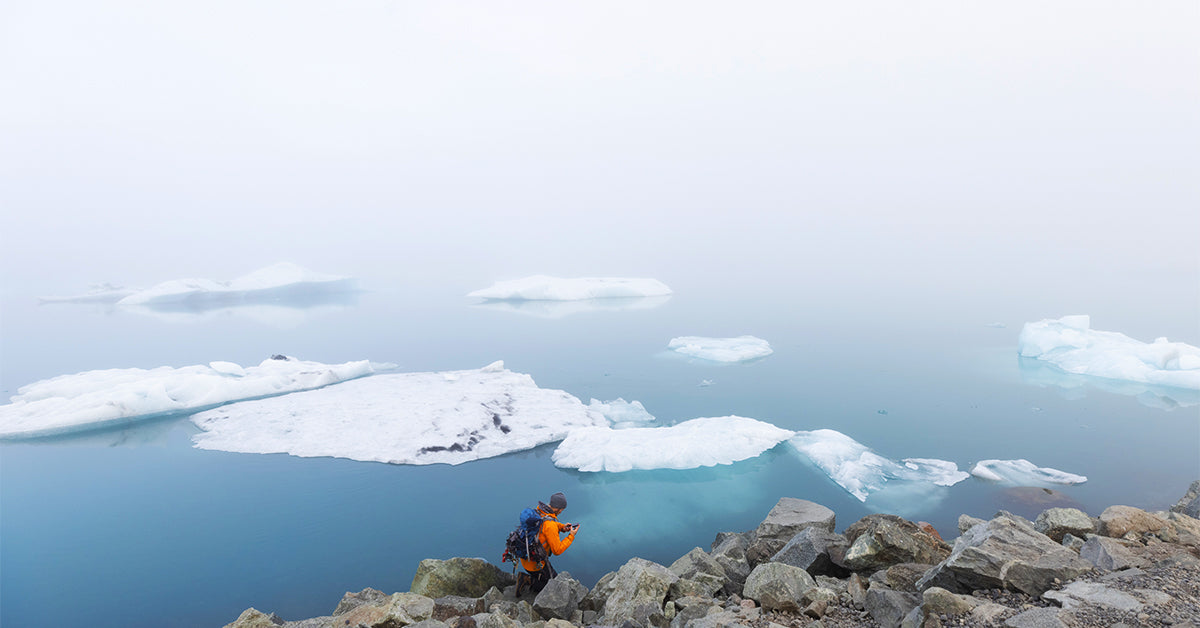AGM Mobile friendly remind that you can freely prepare according to your needs, we included a bunch of stuff that could certainly be very useful!

Clothing
1. Jackets (essential for outdoor mobility, windproof, waterproof, breathable, wear-resistant...)
2. Moisture-wicking underwear (keep your body dry after outdoor sports)
3. Quick-drying trousers (necessary for travel in summer, trousers and sleeves should be detachable)
4. Down pants (a must for keeping warm when traveling in winter or going to the plateau)
2. Moisture-wicking underwear (keep your body dry after outdoor sports)
3. Quick-drying trousers (necessary for travel in summer, trousers and sleeves should be detachable)
4. Down pants (a must for keeping warm when traveling in winter or going to the plateau)
5. Other personal clothing (disposable panties, undershirts, T-shirts...)
Shoes and socks
1. Hiking shoes (adaptable, wear-resistant, waterproof, preferably medium and high-top, can protect the ankle)
2. Lightweight sports shoes (suitable for general hiking, or when driving)
3. Sports sandals (can be worn as slippers, and can also be worn directly on foot in summer)
4. Moisture-wicking socks (preferably to wick away sweat and prevent frostbite in winter)
5. Ordinary sports socks (cotton, comfortable to wear)
6. Gaiters (useful in snow or muddy roads)
Hats, gloves, glasses
1. Sun hat (round edge, baseball cap style, whatever you like, as long as it can block the sun)
2. Fleece hat (mainly to keep warm)
3. Thin gloves (mainly for convenience, such as taking pictures, etc.)
4. Thick gloves (mainly for keeping warm)
5. Glasses (sporty ones are better;the main function is to shade the sun)
Backpacks
1. Large backpack (necessary for short-distance camping or long-distance travel, it is better to carry a load-bearing one)
2. Small backpack (short-distance travel or long-distance backup, ranging from 15-30L)
3. Waist bag or shoulder bag (for long-distance travel, you can put small things with you, preferably the kind that can hold a water bottle)
4. Camera bag (according to personal needs, it is more convenient to take the lens on the crossbody)

Camping
1. Sleeping bag (a small down sleeping bag should be brought for long distances to save space, and it should be brought according to the needs of the season)
2. Sleeping bag liner (if you are not camping for a long trip, just bring a dirt-proof fleece or cotton sleeping bag liner)
3. Tent (for ordinary camping, general waterproof and wind-resistant tents are enough. If you are traveling for a long distance, it is recommended to bring a small and lightweight tent)
4. Tent mats (to protect the underside of your tent from abrasion)
5. Moisture-proof cushion (ordinary ones can let you sit and lie down anytime, anywhere, and air cushions make you more comfortable)
6. Aluminum floor mat (light and easy to carry, can be used as a reflector for photography when necessary)

Lighting
1. Headlights (allows you to free up your hands, which is very convenient)
2. Flashlight (as a backup lighting, it is still relatively reliable)
3. Camp lights (used in camps or tents, the effect is very good)
4. Light sticks (it has a certain role, that is, don't throw it around, it is not environmentally friendly)
5. Windproof lighter (useful, good for emergency lighting)
6. Waterproof matches (also for emergency use)
Cooking utensils
1. Stove (allows you to eat hot things in the wild, one of the petty bourgeoisie supplies)
2. Gas tank (used with stove head, pay attention to carryit safely)
3. Set of pots (cookingrice, soup, noodlesor omelets)
4. Small steel cup (environmentally friendly product, can also be used as a wash cup in the morning)
Drinking utensils
1. Outdoor kettle
2. Military kettle
3. Water bag (useful when traveling in the wild or traveling by bicycle)
4. Insulation kettle
5. Water cleaner (more professional)
6. Cleanwater tablets (convenient to carry, the effect of cleanwater is average, but it can meet the requirements)

Communication
1. Mobile phone (should be waterproof, drop proof and dustproof, not like the ordinary phone, can be used in the wild, with GPS function).
2. Walkie-talkie (very useful equipment in team flow, echoing back and forth)
3. Survival whistle (convenient to carry, can also be used as one of the team contact methods)
Other things
1. Mountaineering tent (if used well, it can save about 20% of physical strength)
2. Toiletry bag (no need to mention the use)
3. Personal hygiene (toothbrush, soap, towel, toothpaste, toilet paper, foot powder, earplugs, sunscreen, lip balm, fever patch, nail clippers, water dispenser medicine, personal medicine)
4. Backpack rain cover (not only waterproof, but also an ideal tool for dust prevention for long distances)
5. Backpack straps (can be used to fix the external items of the backpack, and can be connected as a protective rope if necessary)
6. Map (Whether it is a long distance or a short distance, it is a useful tool)
7. Easy hang (easy to hang small objects, towels, hats, garbage bags, etc. on the backpack)
8. Compass (a useful tool for identifying directions in the field, or finding directions after getting lost)
9. Fruit knife (can be used to cut fruit for cooking)
10. Outdoor watch (can measure altitude, temperature, air pressure, with electronic compass, chronograph and alarm clock and other functions)
11. Headscarf (can wipe sweat, but also can be used as a collar to cool, keep out the cold)

12. Waterproof bag (to protect your clothes, and it is convenient to pack up in the backpack)
13. Document bag (put important documents or money)
14. Small telescope (increase the range of your vision)
15. Sewing kit (in case the clothes are broken, sewing is always necessary)
16. Notebook (record your travel mood or accounting needs)
17. Spare batteries and chargers (many things can use batteries)
18. Inflatable pillow (ideal companion for long-distance car or plane rides)
19. Medicines (cold medicine, anti-inflammatory medicine, sunscreen, hemostatic bandages, band-aids, vitamin tablets, eye drops, safflower oil... according to individual needs)
20. Spare food (compressed biscuits, chocolate, beef jerky, energy bars...)
21. Trekking poles
22. People who are short-sighted should prepare a pair of glasses for spare






